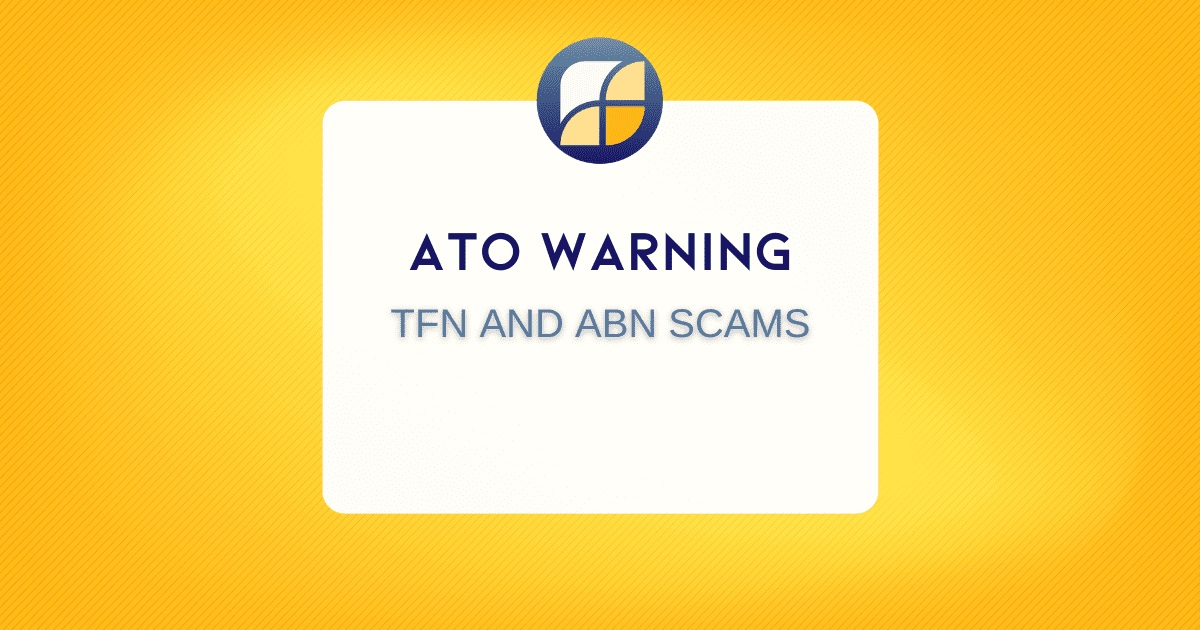ATO urges vigilance following new scams approach
The ATO is urging taxpayers to be vigilant following an increase in reports of fake websites offering TFNs and ABNs for a fee. The ATO states that the fake TFN and ABN services are often advertised on social media platforms like Facebook, Twitter, and Instagram – together with an offer to obtain a TFN or ABN for a fee. But instead of delivering this service, the scammer uses these fraudulent websites to steal both money and personal information.
It is free, quick and easy to use government services to apply for a TFN through the ATO, or apply for an ABNExternal Link through the Australian Business Register (ABR).
ATO Assistant Commissioner Tim Loh said “scammers are constantly developing new ways to target the community, and we expect to see more of these malicious attempts to steal identity details in the lead up to tax time.”
In 2021, more than 50,000 people reported ATO impersonation scams with victims losing a total of more than $800,000.
“We are concerned about a recent increase in the number of victims reporting scams around TFN and ABN applications. We are also still seeing scammers impersonating the ATO, making threats, demanding the payment of fake tax debts or claiming a TFN has been ‘suspended’ due to fraud.”
Those who apply for a TFN or ABN through a tax agent should always check that the tax agent is registered with the Tax Practitioners BoardExternal Link.
“We are encouraging everyone to be on alert and take the time to remind family and friends to be on the lookout and stay safe online, so you don’t fall victim to a scam this tax time.”
Read more about the scam alert and how to identify and report tax and super scams.
Tips to protect yourself from scammers
Know your tax affairs – You will be notified about your tax debt before it is due. Check if you have a legitimate debt owed by logging into your myGov account via an independent search or by calling your tax agent if you have one (on a number sourced independently).
Guard your personal and financial information – Be careful when clicking on links, downloading files or opening attachments. Only give your personal information to people you trust and don’t share it on social media.
If you are unsure, don’t engage – If a call, SMS or email leaves you wondering if it is genuine, don’t reply. Instead, you should phone the ATO’s dedicated scam line 1800 008 540 to check if it is legitimate. You can also verify or report a scam online at ato.gov.au/scams. You can also visit ScamWatchExternal Link to get information about scams (not just tax scams).
Know legitimate ways to make payments – Scammers may use threatening tactics to trick their victims into paying fake debts via unusual methods. For example, they might demand pre-paid gift cards or transfers to non-ATO bank accounts. To check that a payment method is legitimate, visit ato.gov.au/howtopay.
Talk to your family and friends about scams – If you or someone you know has fallen victim to a tax-related scam, call the ATO as soon as you can.

